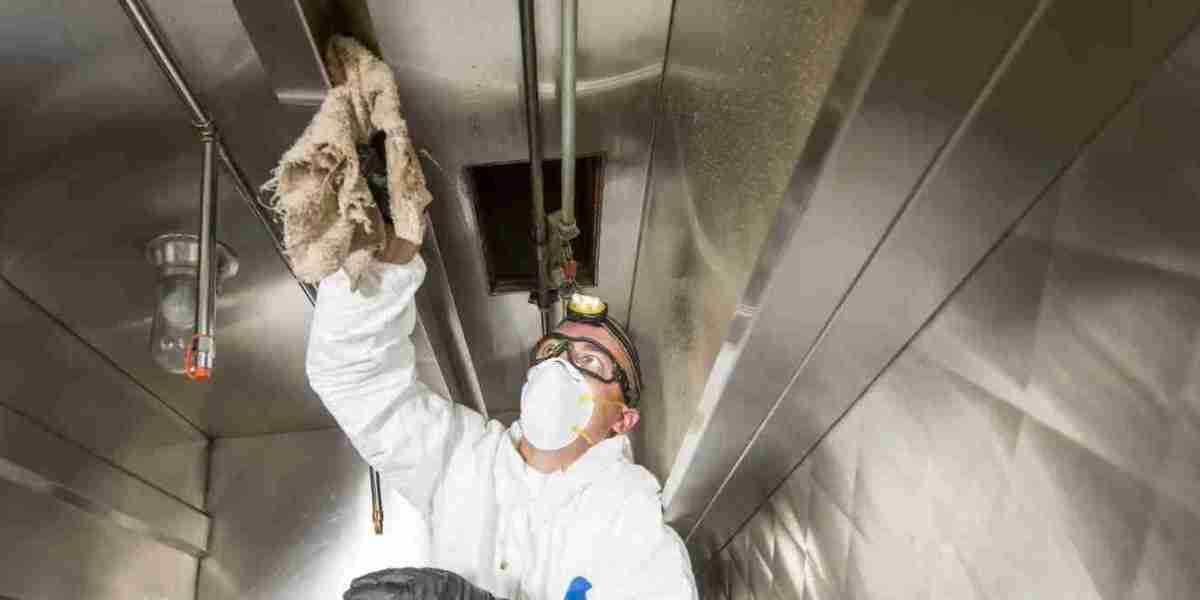When you think of running a restaurant, you may focus on the menu, service, and atmosphere—but there’s one key aspect of your kitchen that can’t be overlooked: fire safety. A major threat that many restaurant owners may not immediately consider is the risk posed by grease buildup in kitchen hoods. The restaurant hood, or exhaust system, plays a critical role in venting smoke, heat, and grease-laden air away from your kitchen. However, if it’s not cleaned regularly, it can become a fire hazard that puts both your staff and business at risk.
In this blog, we’ll explore why regular restaurant hood cleaning is essential for fire prevention and how it can protect your business, employees, and customers.
1. The Dangers of Grease Buildup in Kitchen Hoods
During cooking, especially when preparing fried foods or grilled items, grease particles naturally accumulate in the kitchen’s exhaust system. Over time, these grease deposits build up inside the hoods, filters, ducts, and fans. This is where the problem lies—grease is highly flammable. As the buildup continues, the risk of a grease fire increases, particularly when the accumulated grease becomes exposed to high heat from cooking equipment or malfunctioning exhaust fans.
In fact, grease fires in commercial kitchens are a leading cause of fires in restaurants. These fires can spread quickly and cause significant damage to the property, not to mention the potential harm they pose to employees and patrons. Without proper cleaning, the grease buildup can get to a point where even a small spark or heat surge can ignite a dangerous fire.
2. Fire Hazards and Regulatory Compliance
Maintaining a clean kitchen exhaust system is not just a best practice—it’s a legal requirement. Fire safety regulations, including those from the National Fire Protection Association (NFPA), require that commercial kitchen exhaust systems be cleaned regularly to prevent fire hazards. NFPA 96, which specifically addresses the fire safety of commercial kitchens, recommends periodic cleaning based on the volume of cooking and the type of foods prepared. For high-traffic restaurants or those that cook greasy foods regularly, cleaning should be done more frequently.
Failure to comply with these regulations can lead to hefty fines, loss of business insurance coverage, and potential shutdowns during inspections. Most importantly, neglecting hood cleaning puts your kitchen at risk of a serious fire, which could be devastating for your business and your employees' safety.
3. How Regular Hood Cleaning Helps Prevent Fires
Regular cleaning of your restaurant’s hood system prevents grease and grime from accumulating to hazardous levels. Here’s how consistent maintenance can keep your kitchen fire-safe:
Removal of Grease and Debris: Professional hood cleaning involves thoroughly scrubbing and removing grease, food particles, and other flammable materials from the exhaust system. By reducing these hazards, the likelihood of a fire is significantly lower.
Improved Airflow and Functionality: A clean hood and exhaust system help ensure that smoke, heat, and grease are effectively ventilated out of the kitchen. If the system is clogged with grease, airflow becomes restricted, making the cooking environment hotter and more likely to trigger a fire.
Prevention of Overheating Equipment: When grease buildup blocks the proper functioning of fans or other components, it can cause the equipment to overheat, further increasing the chances of ignition. Regular cleaning ensures that everything is working as it should, reducing the risk of malfunctioning equipment.
4. How Often Should Restaurant Hoods Be Cleaned?
The frequency of hood cleaning depends on several factors, such as the size of the kitchen, the volume of food being cooked, and the type of food being prepared. However, there are some general guidelines:
- High-Volume Kitchens (e.g., fast food, pizza restaurants): Should have their hoods cleaned every 1-3 months.
- Medium-Volume Kitchens (e.g., fine dining, family-style restaurants): Should have hoods cleaned every 3-6 months.
- Low-Volume Kitchens (e.g., cafes, bakeries): Should have hoods cleaned every 6-12 months.
If your restaurant prepares greasy or fried foods regularly, you should lean toward more frequent cleaning. A professional cleaning service can assess your kitchen’s specific needs and create a cleaning schedule tailored to your operation.
5. The Benefits of Professional Hood Cleaning
While you may be tempted to clean your restaurant hood yourself, professional cleaning services are essential for ensuring that the job is done thoroughly and safely. Here’s why:
- Expertise: Certified hood cleaning professionals have the tools, training, and experience to safely remove grease buildup from all parts of the exhaust system.
- Comprehensive Cleaning: Professionals clean not just the visible surfaces of the hood, but also the ducts and fans, which can be difficult to reach and clean without specialized equipment.
- Fire-Safe Documentation: A reputable cleaning service will provide documentation of the work completed, which can be useful during health inspections or insurance audits.
6. Peace of Mind for Your Business
The peace of mind that comes with knowing your restaurant hood is regularly cleaned is invaluable. With a professional cleaning service, you ensure that your kitchen is safer, your equipment is functioning at peak performance, and you’re complying with fire safety regulations. Your employees will also appreciate the improved air quality and working conditions in a safe and clean kitchen.
Conclusion
Regular restaurant hood cleaning isn’t just about maintaining a tidy kitchen—it’s a critical part of your fire safety strategy. By investing in professional cleaning services and adhering to safety regulations, you significantly reduce the risk of a dangerous grease fire, protect your business and staff, and ensure that your restaurant continues to operate smoothly and safely.
Don’t wait until a fire breaks out—schedule your regular hood cleaning today and keep your kitchen a safe place for everyone.







